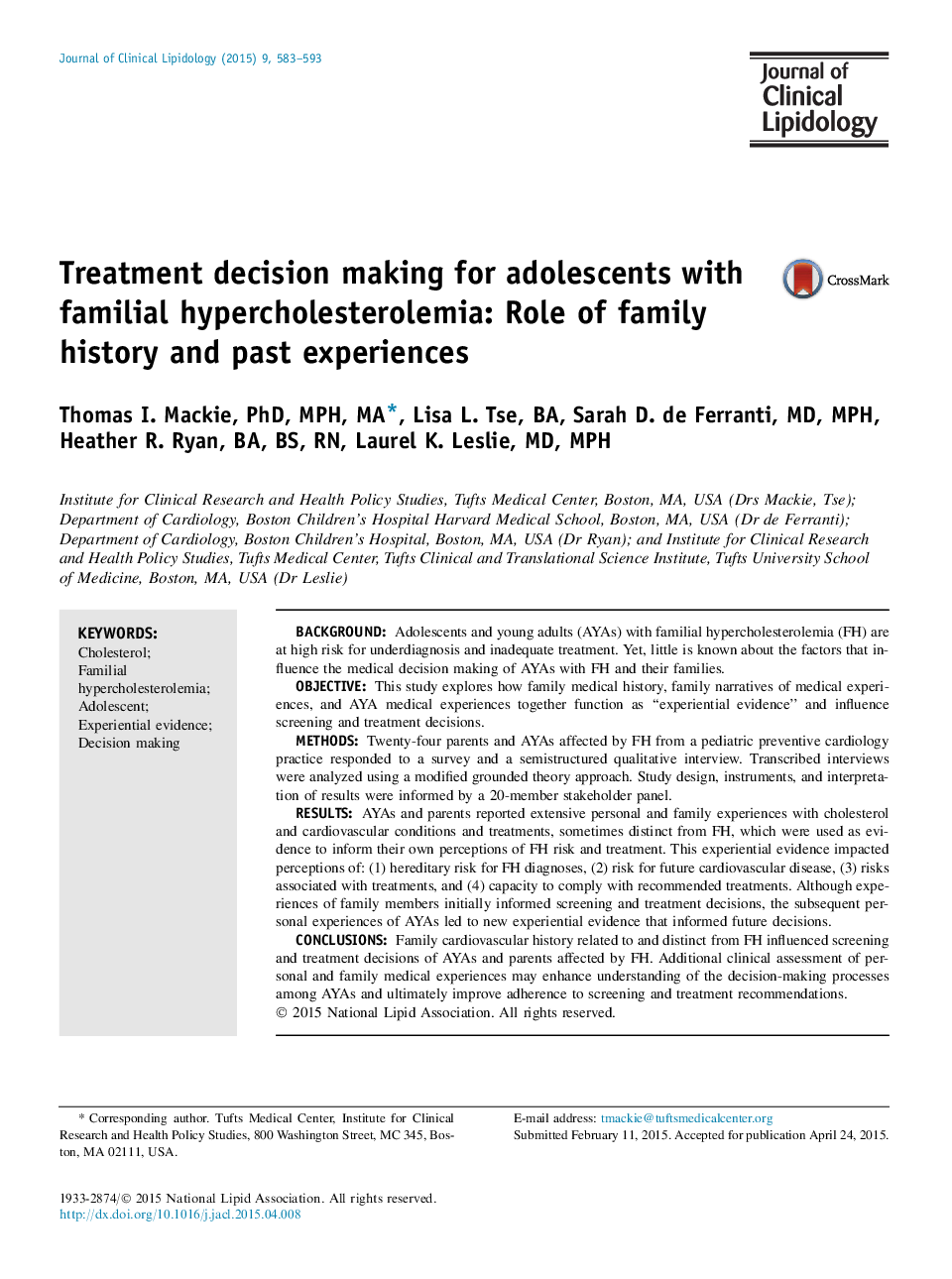| Article ID | Journal | Published Year | Pages | File Type |
|---|---|---|---|---|
| 5985776 | Journal of Clinical Lipidology | 2015 | 14 Pages |
â¢Qualitative interviews occurred with 24 adolescents with FH and parents.â¢Personal and family medical experiences informed decisions related to FH treatment.â¢Influential experiences included conditions not clinically relevant to FH.â¢Formal assessment of personal and family medical experiences may advance FH care.
BackgroundAdolescents and young adults (AYAs) with familial hypercholesterolemia (FH) are at high risk for underdiagnosis and inadequate treatment. Yet, little is known about the factors that influence the medical decision making of AYAs with FH and their families.ObjectiveThis study explores how family medical history, family narratives of medical experiences, and AYA medical experiences together function as “experiential evidence” and influence screening and treatment decisions.MethodsTwenty-four parents and AYAs affected by FH from a pediatric preventive cardiology practice responded to a survey and a semistructured qualitative interview. Transcribed interviews were analyzed using a modified grounded theory approach. Study design, instruments, and interpretation of results were informed by a 20-member stakeholder panel.ResultsAYAs and parents reported extensive personal and family experiences with cholesterol and cardiovascular conditions and treatments, sometimes distinct from FH, which were used as evidence to inform their own perceptions of FH risk and treatment. This experiential evidence impacted perceptions of: (1) hereditary risk for FH diagnoses, (2) risk for future cardiovascular disease, (3) risks associated with treatments, and (4) capacity to comply with recommended treatments. Although experiences of family members initially informed screening and treatment decisions, the subsequent personal experiences of AYAs led to new experiential evidence that informed future decisions.ConclusionsFamily cardiovascular history related to and distinct from FH influenced screening and treatment decisions of AYAs and parents affected by FH. Additional clinical assessment of personal and family medical experiences may enhance understanding of the decision-making processes among AYAs and ultimately improve adherence to screening and treatment recommendations.
